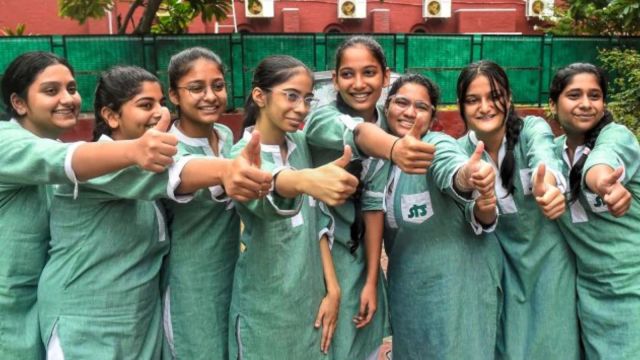CBSE Plan: Pick from standard or advanced Social Science and Science in Classes 9-10
The decision to offer these subjects at two levels was taken during a recent meeting of the CBSE’s curriculum committee. The Board’s governing body, which serves as its highest decision-making authority, has to give the final approval.
 As expected by Delhi metro approximately 3.30 lakh students and thousands of school staff will be commuting across the city using the facility. (Representative image/ Express photo)
As expected by Delhi metro approximately 3.30 lakh students and thousands of school staff will be commuting across the city using the facility. (Representative image/ Express photo)After introducing two levels of Mathematics (standard and basic) for Class 10 students, the Central Board of Secondary Education (CBSE) is learnt to be working towards a similar structure for Science and Social Science (standard and advanced) for Classes 9 and 10, starting from the 2026-27 academic session.
The decision to offer these subjects at two levels was taken during a recent meeting of the CBSE’s curriculum committee. The Board’s governing body, which serves as its highest decision-making authority, has to give the final approval.
The framework for this change, including whether students opting for the advanced level will use different study material or simply take a different exam, is yet to be finalised. According to sources, the CBSE is awaiting the release of new textbooks by the National Council of Educational Research and Training (NCERT), aligned with the updated National Curriculum Framework.
While the NCERT, which advises the Centre on school education and classroom curriculum, released new textbooks for Classes 1 and 2 last year and for Classes 3 and 6 this year, it is expected to release textbooks for a few more classes in early 2025 before the new academic session begins.
The decision is in line with the National Education Policy, 2020, which states that “all subjects and corresponding assessments, beginning with Mathematics, could be offered at two levels, with students doing some of their subjects at the standard level and some at a higher level”. This suggestion is part of the policy’s push to “reduce pressure and the coaching culture”.
Currently, the Board offers only one subject at two levels in Class 10. In this model, the syllabus for students opting for Mathematics (Standard) and Mathematics (Basic) is the same, but the question papers and the difficulty level of the questions in the Board examination differ. This system was introduced in the 2019-20 academic session.
AS PART of the attempt to “reduce pressure”, the National Education Policy, 2020, stated that “all subjects and corresponding assessments, beginning with Mathematics, could be offered at two levels, with students doing some subjects at standard level and some at higher level”.
According to CBSE data, in the 2023-24 exam, more students registered for the standard level (15,88,041 students) of Maths as compared to the basic level (6,79,560 students).
The objective behind offering Science and Social Science at two levels for Classes 9 and 10 is to allow students with the aptitude for these subjects to study them at an advanced level before they take up these subjects in Class 11, said a source.
Students are likely to be granted a certain time-frame to take a final decision on whether they want to take the advanced or standard levels, allowing them to switch within that period.
The advanced level could mean additional learning material, different textbooks or the same textbook with more advanced exercises, and/ or additional learning hours. For the exams, it could mean an entirely different set of question papers for the advanced level, or a question paper that may have a different set of questions for the standard and advanced levels.
The framework – on how the two levels will be implemented — will depend on the new textbooks that will be developed by the NCERT.
Textbooks that align with the National Curriculum Framework for School Education (NCFSE), 2023, have already been introduced for Classes 1, 2, 3 and 6. The NCERT is in the process of developing textbooks for Classes 4, 5, 7 and 8, and these are set to be made available to students from the 2025-26 academic session.
At an event in October this year, Education Minister Dharmendra Pradhan had said that new textbooks for more classes are likely to be made available from next year. “By January 2026…desh mein nayi pathyapustak aa hi jayega (the country will have new textbooks),” he had said.
- 01
- 02
- 03
- 04
- 05































